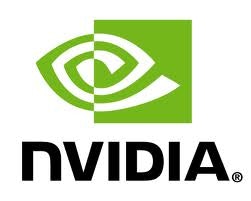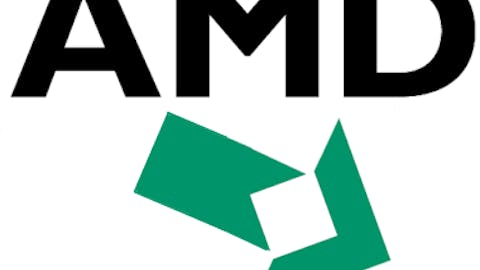Forget Microsoft Corporation (NASDAQ:MSFT)’s next Xbox. Ignore Sony Corporation (ADR) (NYSE:SNE)’s PlayStation 4. Three other companies are hoping to disrupt the video game landscape this year with other, alternative consoles. For those on a budget, there’s the Ouya, a cheap cube running Google Inc (NASDAQ:GOOG)’s Android operating system. Also this year, the first of the Steam Boxes should be available, bringing an alternative form factor to PC gaming. Lastly, NVIDIA Corporation (NASDAQ:NVDA)’s Shield promises to shake up the mobile gaming landscape.

Cheap home gaming with the Ouya
The Ouya is a bit of a grassroots effort, raising funds from the website Kickstarter. With a $99 price tag, and digital-only distribution system, Ouya could appeal to gamers on a budget.
It should also entice tech enthusiasts, as it offers a cheap way to bring Google Inc (NASDAQ:GOOG)’s mobile operating system to the big screen. Although the Ouya runs a forked version of Android — and thus does not have the Google Inc (NASDAQ:GOOG) Play app store — hobbyists are already discussing ways to circumvent this limitation.
Developers won’t be able to bring Ouya games directly to the broader Android ecosystem (and vice-versa), but because Ouya runs a modified version of Android, porting games back and forth should be relatively easy.
Consequently, in the event the Ouya takes off, it could lead to more games appearing on Android — one of the operating system’s current weaknesses. Right now, Apple Inc. (NASDAQ:AAPL)’s iOS boasts a better selection of mobile games, but Ouya could help Google Inc (NASDAQ:GOOG) narrow that gap.
Mobile gaming may not seem like a big deal, but it is. According to a Business Insider survey, two-thirds of tablets are used for playing games.
Steam Box: PC gaming with a twist
There’s long been a divide in the gaming community between those who game on their PCs, and those who prefer consoles. Although PC gaming has a number of advantages, it can be daunting.
PC games often require particularly powerful computers, which can be expensive unless the user builds the device themselves. This leaves many who are not technically inclined to stay away.
Enter Valve. The company, founded by a former Microsoft Corporation (NASDAQ:MSFT) employee, is mostly known for its Steam digital game store — think iTunes, but for PC games. Steam is so popular that it has come to dominate the digital distribution of PC games. Now Valve wants to get into hardware.
The Steam Box is, for all intents and purposes, just a small PC optimized for Valve’s Steam service. But what’s most interesting about it is that it doesn’t run Microsoft Corporation (NASDAQ:MSFT)’s Windows — but rather, the popular open source operating system Linux.
Valve’s founder has been outspoken in his opposition to his former employer. He has been particularly critical of Windows 8, saying that the operating system is so bad that it will make people “rage quit computing.”
But Valve isn’t the only company making Steam Boxes: the first will actually be produced by a company called Xi3. But Valve will probably follow with its own, and perhaps other companies will as well.
Unlike the Ouya, Steam Boxes pack a lot of power and carry a hefty price tag — Xi3’s will start at $999. But with that much power, and the Steam distribution service, it could have the best chance at taking some sales away from the traditional consoles.
On a larger note, it’s also further evidence of the decline of Windows as an operating system. With the decision to make the Steam Box, Valve is clearly concerned about the long-term future of the traditional Windows PC, and is in fact helping to make that a reality. Gamers, who now need a beefy Windows PC to play their games, could switch to a non-Windows, Linux-based Steam Box for their gaming needs sometime in the future.
Nvidia Shield: a goofy handheld
To put it bluntly, the Nvidia Shield is a strange device. At $349, it’s an expensive handheld (for comparison, Nintendo’s 3DS is well under $200), particularly since it — like the Ouya — runs Android.
But the Shield does run stock Android and has access to the Google Inc (NASDAQ:GOOG) Play Store. So, if it does sell well, it will most certainly boost Android gaming even more so than the Ouya. But that seems unlikely.
Someone with a high-end Android phone, like a Samsung Galaxy or HTC’s One, could replicate Shield simply by pairing their phone with an external controller, such as the $50 MOGA Pro. That raises the question: who exactly is Shield for?
But Shield does have one innovative feature that you won’t find anywhere else: if you happen to have a newer NVIDIA Corporation (NASDAQ:NVDA) graphics card, you’ll be able to stream games from your PC to Shield — but only if you’re in the same area.
Shield seems like a test device, intended to allow NVIDIA Corporation (NASDAQ:NVDA) to explore the cloud gaming space. I don’t think investors should look to Shield as a catalyst for NVIDIA Corporation (NASDAQ:NVDA)’s stock, but it does lend support to the notion that NVIDIA Corporation (NASDAQ:NVDA) is shifting its focus. Shield, along with Nvidia’s GRID program, could slowly transform the company from a desktop video card maker into a major player in cloud gaming.
The year is shaping up to be huge for the video game industry
Without a doubt, 2013 is shaping up to be one of the biggest years in the history of video games. But it isn’t just the new consoles from Microsoft Corporation (NASDAQ:MSFT) and Sony Corporation (ADR) (NYSE:SNE) that will shake up the industry; the Ouya, the Steam Box, and Nvidia’s shield are all radical new consoles that are poised to push video gaming in a totally different direction.
For investors, there are a few takeaways. Ouya brings the possibility of more Android games, and therefore, a more robust Android ecosystem. At the same time, Steam Boxes hint at the decline of Windows and could actually accelerate the operating system’s demise. Finally, NVIDIA Corporation (NASDAQ:NVDA)’s Shield probably won’t sell well enough to matter, but does show that Nvidia should be a cloud gaming force in the future.
Joe Kurtz has no position in any stocks mentioned. The Motley Fool recommends Google and Nvidia. The Motley Fool owns shares of Google and Microsoft. Salvatore “Sam” is a member of The Motley Fool Blog Network — entries represent the personal opinion of the blogger and are not formally edited.
The article 3 Radical Video Game Systems are Trying to Shake Up the Market originally appeared on Fool.com is written by Salvatore “Sam” Mattera.
Copyright © 1995 – 2013 The Motley Fool, LLC. All rights reserved. The Motley Fool has a disclosure policy.





